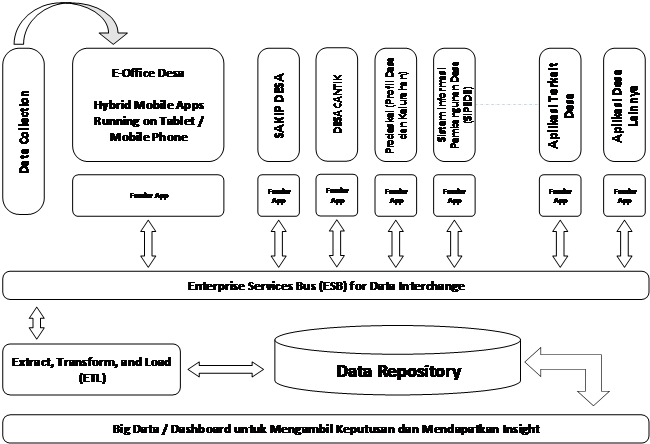HDX Team 1 - Connected Dream Village
HDX Team 1 - Connected Dream Village
Identification
Background
In West Java Province, Located 211 km from Jakarta, Population 1,2M Poverty 9.07% (2019), 10,26% (2020).
General Information
Existing Condition
E-office Desa Master Plan
E-office Desa Current Implementation
Problem and Objectives Analysis
Stakeholder Analysis
Problem Analysis
Solution Analysis / Analysis of Objectives
Strategy Selection
Project Outcome and Output
Logical framework Matrix
Logical Framework Approach is a good analytical tool in the assessment, follow-up and evaluation of a project using a logical approach. The logical approach in this case is to build a hierarchy of logical frameworks that are oriented towards project goals to help clarify project or program objectives, identify causative relationships between inputs, processes or activities, outputs, outcomes and impacts. In table below showing the logical framework matrix of this project.
Timeline
Timeline is a written document that contains information about the plan of work or project implementation schedule, when each stage of work must begin and be completed and it also contains information about the stages of work sequentially. The timeline is an important document that guides the team’s work steps so that the project can be managed and monitored properly. In this project, we divide the work plan into 3 major stages, namely: identification stage, problem and objective analysis stage, and lastly project outcomes and output stage. The details of this project plan and timeline can be seen in the table below.
Resources
As an effort to overcome the problems that occur in this project and meet the program targets, there are resources needed, namely:
- Human resources. Human resources involved in the success of this project must have adequate competencies such as qualified data collector, data verifier and data operator, qualified planner (Bappeda as the owner of this project) and qualified programmer and developer.
- Logistic. Intended logistic means village funs that allocated to employ qualified data operator.
- Skill. In order to have a competent human resource requires qualified skills. Through capacity building program for data collector, data verifier and data operator, it is expected to produce skillful human resources.
- Knowledge. Knowledge that is important to understand in this project is to build awareness of the importance of the success of this project for improving the village quality of life.
- Tool. The tools needed to support the success of this project are regulations and implementation of reward and punishment system
Project Implementation and Testing
- Beneficiaries data bridging through feeder application
- Develop enterprise service bus (ESB) for data interchange using feeder application
- Enterprise Service Bus
- Enterprise Service Bus (ESB) is a centralized software component that integrates various applications and systems. ESB performs data transformation, message routing between applications, and translates various communication protocols owned by each system. ESB can be implemented using WSO2, an open-source software available in the market.
- Feeder Application
- Feeder App is an application built to bridge data collection from each village application. The data taken from each village application will be sent to the Enterprise Service Bus.
- File:FeederApp.png
- Data page on Prodeskel application
- File:FeederApp2.png
- Data feeder application and Prodeskel have been synchronized
- Create capacity building program
- There are 3 objectives of creating capacity building programe:
- Develop an awareness campaign to promote the potential and importance of data collected and how it can help improve the villages
- Develop a capacity building to strengthen data literacy among village leaders as part of the digital transformation plan for each village
- Provide guidance and training for data collector, data verifier and data operator.
- We proposed that the program is delivered using LMS (Learning Management System). LMS has many functions and advantages including:
- Compiling syllabus of program
- Managing learning material
- Manage grade, attendance recapitulation and display grade transcripts
- Discussion and quiz
- More efficient learning time
- Cost efficiency compare to offline program
- Easy to implement technologies such as animation, video and text
- Encourage independent learning
- Well documented learning content
- We have held socialization and training for trainer on the use of LMS ([simpatikvillage.talentlms.com simpatikvillage.talentlms.com]) to stakeholders in Sumedang Regency and received very good feedback. After the socialization and training, Department of Communication and Information Technology Sumedang Regency (Diskominfo Sumedang) has carried out further exploration which confirms that the LMS solution we offer is very good, complete, simple user interface and willing to be used in Sumedang Regency.
- File:Simpatik lms.png
- LMS Socialization and Training for Traineer Documentation
Project Output
Appendixes
Team Members
- Aris Winarna
- Anang Latif
- Anastasya Yolanda
- Danny Januar Ismawan
- Florence Francis
- I Gusti Ayu Laxmy Saraswaty
- I Kadek Agus Arya Wibawa
- Ketut Agus Indra Diatmika
- Nasir Ahmad
- Tri Haryanto

